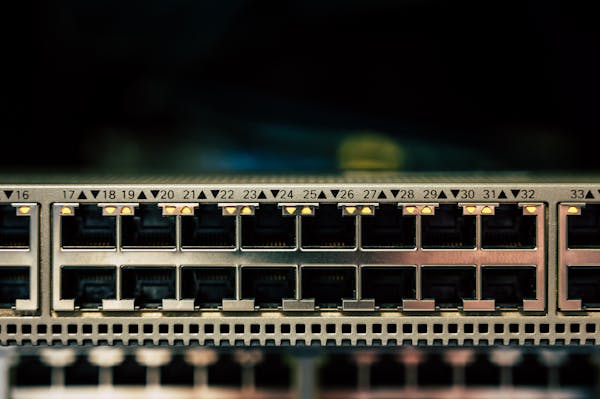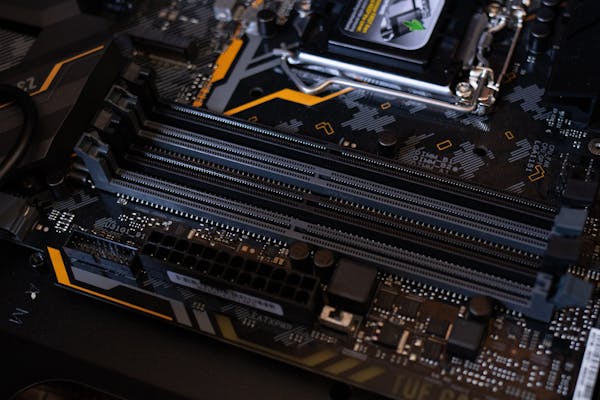Source article: https://heyzine.com/ (4G rotating proxy mobile for sale)

Delving into 4G Rotating Proxies
In today’s digital landscape, mobile 4G proxies have become essential for secure and anonymous browsing.
Defining 4G Rotating Proxies
These proxies employ mobile networks to assign dynamic IP addresses to users. Unlike static proxies, they rotate IPs after set intervals, improving security.
How Do They Work?
Once initiated, the proxy server assigns a mobile IP. These IPs are switched periodically, hindering surveillance.
Benefits of Mobile 4G Proxies
- Increased Security: Dynamic IP rotation masks real IP addresses.
- Overcoming Location Barriers: Changing IPs enable viewing of geo-blocked sites.
- Reduced IP Bans: Frequent IP changes prevent bans.
Use Cases for Mobile Proxies
- Data Extraction: Rotating IPs maintain access to target sites.proxies facilitate automation.
- Competitor Analysis: Changing IPs monitor competitor strategies.
- o Consider}
In choosing a proxy service, consider:
- IP Pool Size: A larger pool offers better rotation.
- Switching Mechanisms: Determine if the service rotates per request.
- Geographical Coverage: Access to multiple regions supports diverse tasks.
Potential Challenges
- Budget Concerns: 4G proxies can impact budgets compared to other types.
- Performance Issues: Mobile networks may affect consistency.
- Compliance Issues: Ensure usage respects terms of service.
Final Thoughts
4G rotating proxies enhance online privacy, making them invaluable in today’s digital age.
Understanding the Operational Aspects of 4G Rotating Proxies
In the realm of internet privacy, 4G rotating proxies have emerged as pivotal tools for maintaining user anonymity.
What Are 4G Rotating Proxies?
These proxies employ mobile networks to rotate IP addresses to users. Unlike static proxies, they offer dynamic IP rotation, enhancing anonymity.
How Do They Work?
Once initiated, the proxy server assigns a mobile IP. These IPs change after specific durations or actions, making tracking difficult.
Why Opt for 4G Rotating Proxies
- Improved Privacy: Dynamic IP rotation masks real IP addresses.
- Bypassing Geo-Restrictions: Changing IPs enable viewing of geo-blocked sites.
- Minimized Blocking Risks: Frequent IP changes avoid detection systems.
Practical Implementations
- Data Extraction: Rotating IPs ensure continuous data collection.
- Multiple Account Handling: Dynamic proxies reduce account bans.
- Ad Verification: Changing IPs validate ad placements.
Selecting a Reliable Provider
When opting for a 4G rotating proxy, consider:
- IP Pool Size: A larger pool enhances anonymity.
- Rotation Frequency: Determine if the service has fixed durations.
- Location Options: Access to multiple regions aids in geo-testing.
Potential Challenges
- Budget Concerns: 4G proxies can impact budgets compared to other types.
- Connection Stability: Mobile networks may affect consistency.
- Ethical and Legal Considerations: Ensure usage aligns with laws.
Conclusion
4G rotating proxies provide dynamic IP solutions, establishing their importance in modern internet usage.
Today’s online landscape, staying anonymous and bypassing restrictions has become more necessary than ever. Affiliate marketers, agencies, and SEOs often utilize proxy technologies to change their IPs. Among these, 4G LTE rotating proxy servers have become the go-to solution.
But how do they compare to other proxy types like static proxies? Let’s dive deep.
== What is a 4G Rotating Proxy?
A 4G mobile proxy is a proxy that routes internet traffic through a real mobile device. These proxies change IPs at custom timeframes or upon request, emulating human behavior and reducing the chance of bans or blocks.
== Main Proxy Types
Let’s look at the key proxy types before comparing:
1. **Datacenter Proxies**
– High-speed and cheap, but easily flagged.
2. **Residential Proxies**
– Use IPs assigned to real homes. More legit, but slower and costlier.
3. **4G Mobile Proxies**
– Use real SIMs on LTE networks. Ideal for automation and stealth.
4. **SOCKS5 Proxies**
– Protocol-based, flexible, used for various apps, not just HTTP.
== Comparison Table
| Feature | 4G Rotating Proxies | Datacenter Proxies | Residential Proxies | SOCKS5 Proxies |
|————————|———————|———————|———————|—————-|
| IP Source | Mobile Network (SIM)| Data Centers | Home IPs | Varies |
| Rotation | Yes (Frequent) | Sometimes | Optional | Manual |
| Ban Resistance | High | Low | Medium | Depends |
| Speed | Medium | High | Low-Medium | High |
| Price | High | Low | Medium | Low-Medium |
| Target Use | Social, Ads, Bots | General Scraping | E-commerce, Research| General |
| Block Detection | Low | High | Medium | Medium |
== Technical Advantages of 4G Rotating Proxies
What gives mobile proxies their edge?
– **Real Device Trust**: Websites trust mobile IPs more than others due to carrier NAT and wide user pools.
– **Shared Reputation**: IPs are shared across many users, making banning a single user risky.
– **Geo-targeted Mobile Carriers**: Rotate between networks in real U.S. cities or countries.
– **Dynamic Rotation**: Can rotate every few minutes or after each request.
– **Bypasses Captchas**: Mobile IPs are less likely to trigger captchas or challenge verifications.
== Where 4G Proxies Win
Here’s the truth— if you’re doing social media automation, nothing works better than a solid 4G proxy.
– Instagram and TikTok trust mobile IPs.
– Web scraping? You’ll trigger fewer blocks.
– Ads management across banned zones? Done.
== Where They Fall Short
– **Cost**: They’re premium priced.
– **Speed**: Slower than static datacenter options.
– **Limited Threads**: Some providers limit concurrent usage.
== SOCKS5 vs 4G: Protocol vs Behavior
SOCKS5 proxies are great tools. But they don’t have native rotation.

| Attribute | 4G Proxy | SOCKS5 Proxy |
|———————|——————–|——————–|
| Protocol Type | HTTP/HTTPS | SOCKS5 (All apps) |
| Rotation | Yes | Manual |
| IP Trust Level | Very High | Medium |
| Use Cases | Social, Ads, Bots | Torrenting, Apps |
== Use Cases Side-by-Side
**4G Rotating Proxies:**
– Social Media Management
– Mobile Ad Verification
– SEO Scraping
– Sneaker Bots / E-com Testing
– Marketplace Automation
**Datacenter Proxies:**
– High-volume scraping (non-sensitive)
– Speed-demanding tasks
– Price-conscious campaigns
**Residential Proxies:**
– E-com price intelligence
– Research tools
– CAPTCHA-heavy targets
**SOCKS5 Proxies:**
– Application-level traffic routing
– Anonymity over torrents
– Bypassing firewalls
== How to Choose the Right One?
Not all proxies are created equal. Here’s how to choose:
– Need speed? Go datacenter.
– Need trust and stealth? Go 4G mobile.
– Need app-level routing? Go SOCKS5.
– Need wide IP pools without rotation? Try residential.
== Future of 4G Rotating Proxies
With AI detection systems growing smarter, only mobile proxies are keeping up. We’re seeing:
– 5G proxy rollouts in testing
– Smarter rotation algorithms
– Integration with automation platforms like Jarvee, NextPost, Puppeteer
== Final Verdict
If you want the closest thing to human, 4G rotating proxies are your best bet. For any campaign that’s running multiple accounts, it’s worth the investment.
== Spintax Conclusion
If you’re testing products or scraping competitors, investing in the right proxy is a make-or-break decision.
4G rotating proxies may cost more, but the results speak for themselves.
https://www.fortinet.com/resources/cyberglossary/proxy-server
https://en.wikipedia.org/wiki/Proxy_server
https://support.microsoft.com/en-us/windows/use-a-proxy-server-in-windows-03096c53-0554-4ffe-b6ab-8b1deee8dae1
https://www.reddit.com/r/explainlikeimfive/comments/1dfgepb/eli5_what_is_a_proxy_server_and_why_would_i_as_an/
https://surfshark.com/blog/proxy-server
